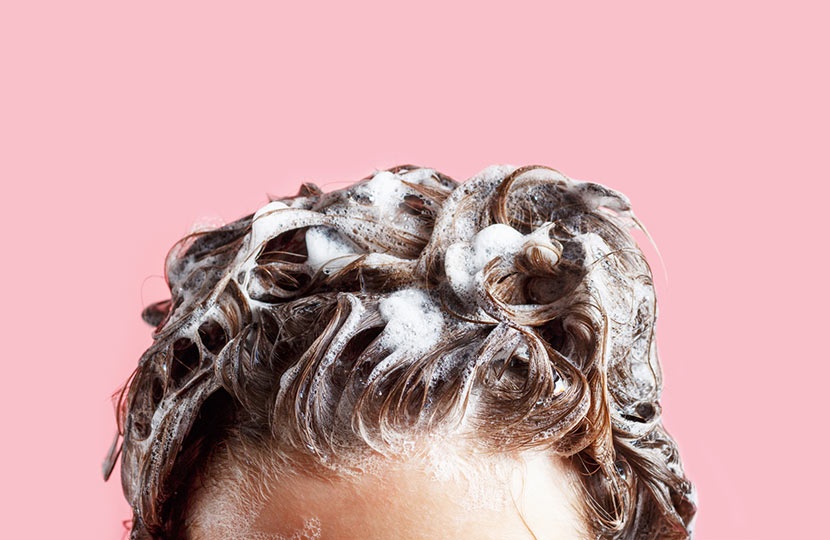Education
Can CBD Help With Dandruff?

We see you scratching your head there. Trying to decide what type of strain to try next? No? Come to think of it, it looks like you're pretty well stocked. So how come you keep scratching then? Itchy scalp? Problem with dandruff? You've tried everything and nothing has worked?
You've read about all the things cannabis can do to help with life's inconveniences and hardships. So naturally, you're eager to find out if this plant can offer relief from dandruff. Well, we're glad you're here, because we're ready to shed some light on this topic and help you take care of that itchy scalp.
A History of Healing Skin
CBD has proven to be a useful chemical for reducing inflammation and has thus caught the attention of skincare experts. It's now common to find this cannabinoid in products designed to treat conditions such as acne, eczema, and psoriasis. With that said, it's only logical to assume CBD can help with dandruff as well.
One of the common issues behind dandruff is the overproduction of skin cells. CBD can help manage this process to prevent your body from generating excessive cells atop your scalp. And while there are other chemicals that can do this as well — such as salicylic acid — CBD is a natural and gentle alternative. It's inherently anti-bacterial, antifungal, and is known to soothe itchiness. And when you itch, you encourage flakes, as scratching causes your scalp to produce more oil, which can be a breeding ground for fungus and yeast. All of this sounds ideal for dandruff treatment, doesn't it?
There are multiple causes of dandruff, but CBD's versatility makes it perfect for targeting whichever form you may be experiencing.
The Science Is Promising
Research does suggest that shampoos with CBD can help with minor to moderate cases of seborrheic dermatitis or psoriasis. In October 2020, Health Sciences publishing company Karger put out a study demonstrating the effectiveness of a 0.075% broad-spectrum CBD shampoo. Subjects used shampoo bottles containing 150mg of CBD, along with caffeine and ketoconazole, the latter of which is an antifungal medication. Itching, irritation, burning, and inflammation were each measured, and participants experienced notable relief from all of these categories after two weeks. To ensure accuracy, researchers used a form of dermoscopic imaging to observe hair and scalp conditions before application and after.
Drexel University College of Medicine released a comprehensive paper detailing the benefits of CBD as a skincare treatment. It compiled numerous studies, including one in 2014 that confirmed the cannabinoid's effectiveness in controlling sebocytes and lipogenesis and another that highlighted its ability to calm itchiness. In the latter study, 38% of the subjects involved were itch-free by the third week of topical application, while over 80% reported relief from dry skin. Ultimately, the paper suggests that CBD could be useful for individuals experiencing psoriasis, allergic contact dermatitis, atopic dermatitis, and inflammatory skin conditions.
It is believed that CBD is capable of interrupting an enzyme that is responsible for causing an over-excretion of skin sebum. And where there's excessive sebum, there's oily skin. Researchers also theorize that CBD hydrates the skin and improves elasticity. Not only that, but they believe the cannabinoid builds in the sebaceous glands, which means it keeps working even after you've washed your hair. Isn't cannabis great?
Applying CBD to Your Scalp
While CBD is natural and safe to use, you should always do a quick spot test to rule out any possible reaction. Even something as gentle as CBD could make the condition worse in certain individuals. To do a spot test, apply a little bit of product to a small area of skin. As long as your skin doesn't react negatively, you're ready to begin.
When using cannabis products, you have a few different ways you can attack dandruff. If you have a quality CBD oil, you can always use it on your head, though such a method will require a lot of product. When treating a smaller area, you can administer a few drops into your palm, then run it through your hair where dandruff buildup is most acute. You want to be gentle while applying it to your scalp and then leave it in overnight for best results. You can then wash it out when you wake up. For those who experience dandruff all over, it's best to add CBD oil to olive oil, coconut oil, or another similar carrier oil before application. From there, delicately massage it in, one area at a time. For best results, leave it on your scalp for several hours with a towel wrapped around your hair.
It's easier to use an ointment or lotion that's packed with CBD than straight oil, though for optimal results, you should let it sit overnight if possible. Your best and easiest option, however, is a CBD shampoo, which requires the same steps you'd take with any other shampoo — though you will want to let it sit for five to ten minutes before rinsing.
It's important to keep in mind that, much like other types of cannabis products, the efficacy of CBD shampoo has not been thoroughly researched. With that said, the studies that are available show a lot of promise. While CBD appears to be an effective method of treatment, it's not guaranteed to work for everyone. If your symptoms worsen, stop using CBD immediately and talk to your physician.









